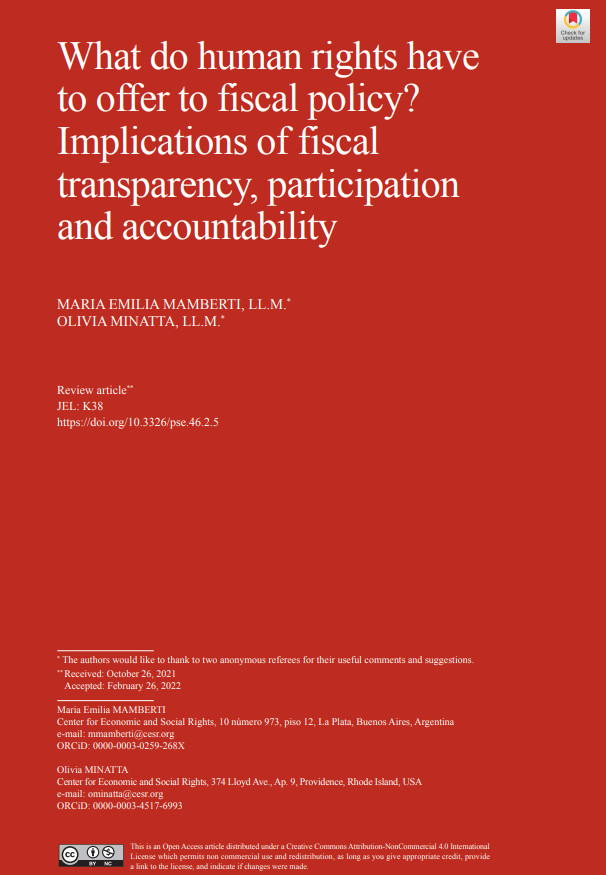What do human rights have to offer to fiscal policy? Implications of fiscal transparency, participation and accountability
DOI:
https://doi.org/10.3326/pse.46.2.5Keywords:
fiscal policy, human rights, tax benefits, accountability, transparency, participationAbstract
This paper highlights the relationship between fiscal transparency, participation and accountability (FTPA) and human rights. It argues that human rights provide guidance on the scope of FTPA, and tools for citizens to demand more transparent fiscal decisions. By ensuring FTPA, states discharge their international human rights’ obligations and enhance representation and legitimacy in their fiscal policy. Because of these and other benefits, human rights are a useful framework to overcome the gap between FTPA commitments on paper and their implementation in practice. The paper zooms into Principle 7 of the “Principles for Human Rights in Fiscal Policy”, which unpacks the multiple implications that human rights’ standards have for FTPA and provides guidance to governments on discharging their relevant obligations. The paper presents illustrative cases showing how civil society organizations in two countries have used the human rights framework to advocate successfully for more transparency around different items of tax information.

Additional Files
Published
How to Cite
Issue
Section
License
Copyright (c) 2022 Maria Emilia Mamberti, Olivia Minatta

This work is licensed under a Creative Commons Attribution-NonCommercial 4.0 International License.








